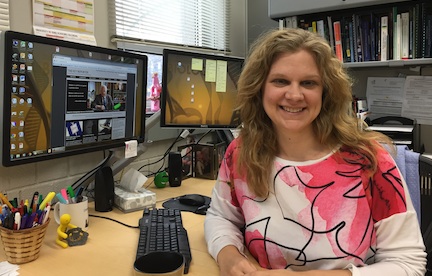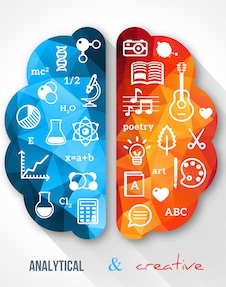By Nicholas McCarty
The Association of American Colleges & Universities defines a liberal education as “an approach to learning that empowers individuals and prepares them to deal with complexity, diversity, and change. It provides students with broad knowledge of the wider world (e.g. science, culture, and society) as well as in-depth study in a specific area of interest.”
Science is something that, over time, has receded from the realm of public understanding. As research continues to evolve and shape our knowledge of the universe, its connections to the community have disintegrated. There is a great need for scientists who are adept and capable of communicating their work to a general audience. What better way to train this next generation of scientists than through a diverse, liberal education that places an emphasis on writing, rhetoric, and the arts?
The Latham Science Engagement Initiative (LSEI) at the University of Iowa is doing exactly that. It is a fellowship program that provides support to undergraduate students as they develop community outreach projects that improve the understanding of science at both a local and national level. Latham Fellows design and pitch project ideas during the fall semester and then implement these projects in the spring. Lori Adams, PhD is the current Deputy Director of LSEI and is the Historian of the Alpha of Iowa Chapter of Phi Beta Kappa. She is a strong proponent of improving the way that scientists learn and communicate with their communities. She teaches a number of courses, including “Ways of Knowing Science” and “Communicating Research.” I met with Adams to get a quick take on what it means to be a liberally-educated scientist and how her own academic experiences have shaped her career.
INTERVIEW
As someone with considerable experience in undergraduate education, what has stood out most to you when comparing science students with backgrounds in the arts and humanities to students who focus the vast majority of their studies on the sciences?
ADAMS: The most striking difference I have observed is that the independent work, such as a research proposal, generated by a student who is exposed to diverse classes in the arts and sciences tends to be more holistic, unique, and creative. This is likely the result of the student being exposed to different points of view and ways of solving a problem, such that when the student is confronted with a scientific question, they instinctively approach it from multiple points of view, using a variety of approaches, and with a stronger sense of discipline.
Throughout your own education, from undergraduate to graduate and even post-doctorate, which courses or ideologies impacted you the most?
ADAMS: One of the most impactful courses I took as an undergraduate was a course on “Science and Society.” This course challenged me to think outside my worldview of science at the time as a set of scientific concepts, definitions and pathways. I began to consider how science as a “way of knowing” impacts the human experience, the way we interact with each other and the environment around us. This course set up the scaffold to which I attached new information gleaned from other arts and humanities courses I took in later years. I began to see science, art, and the humanities not as separate entities, but as a framework that was quite interwoven.

Lori Adams, PhD, Deputy Director of the Latham Science Engagement Initiative and ΦBK Chapter Historian at the University of Iowa, talks with Nicholas McCarty in her office about the importance of a liberal education in fostering scientific creativity.
So what can we do to foster creativity and prepare the next generation of scientists? We can encourage universities to enhance the way that they teach students by fostering a mentality of creative solutions and expanding coursework in art, history, philosophy, music, rhetoric, writing, and leadership.
A liberal education can provide the next generation of scientists – a generation full of innovative students and boundless imaginations – with the tools they need to be impactful researchers, mentors, and community members.
Nicholas McCarty is a junior at the University of Iowa majoring in Biochemistry. The University of Iowa is home to the Alpha of Iowa Chapter of Phi Beta Kappa.




